447 scholarly books by Seagull Books and 12
have author last names that start with G
447 scholarly books by Seagull Books and 12
447 scholarly books by Seagull Books
12 have author last names that start with G have author last names that start with G
12 have author last names that start with G have author last names that start with G

In the Forest of Metropoles
Karl-Markus Gauß
Seagull Books, 2024
A chronicle of the diversity and wealth of cultures, predominantly from Eastern Europe, that have played a formative role in shaping contemporary Europe but now risk being forgotten.
A Herodotus of Mitteleuropa, cultural historian Karl-Markus Gauß is essential reading for anyone trying to understand the breadth and complexities of cultures and societies in Europe before, during, and after its decades of division in the twentieth century.
In this book, Gauß takes his readers on a thirteen-station journey across Europe. From Brussels to Istanbul and from Naples to Opole, Gauß weaves a Sebaldian web of connection and coincidence into a hybrid cultural history. Significantly, Gauß’s metropoles are not the well-trodden, thoroughly explored, and minutely documented megalopolises and cultural capitals that have been mythologized by writers great and small. There are no visits to Berlin, Paris, Rome, or Madrid, although he does make time for Vienna, where he looks not for imperial remnants, but for traces of genius unrecognized by most. Gauß’s lodestars are small but cosmopolitan towns on the periphery, such as Slaghenaufi, Vacaresti, Fontevraud, Dragatus, Vrzdenec, and Sélestat. In these far-flung towns, Gauß assembles a canon of overlooked humanists, expelled or extinguished by political and historical forces that swept the continent.
A Herodotus of Mitteleuropa, cultural historian Karl-Markus Gauß is essential reading for anyone trying to understand the breadth and complexities of cultures and societies in Europe before, during, and after its decades of division in the twentieth century.
In this book, Gauß takes his readers on a thirteen-station journey across Europe. From Brussels to Istanbul and from Naples to Opole, Gauß weaves a Sebaldian web of connection and coincidence into a hybrid cultural history. Significantly, Gauß’s metropoles are not the well-trodden, thoroughly explored, and minutely documented megalopolises and cultural capitals that have been mythologized by writers great and small. There are no visits to Berlin, Paris, Rome, or Madrid, although he does make time for Vienna, where he looks not for imperial remnants, but for traces of genius unrecognized by most. Gauß’s lodestars are small but cosmopolitan towns on the periphery, such as Slaghenaufi, Vacaresti, Fontevraud, Dragatus, Vrzdenec, and Sélestat. In these far-flung towns, Gauß assembles a canon of overlooked humanists, expelled or extinguished by political and historical forces that swept the continent.
[more]
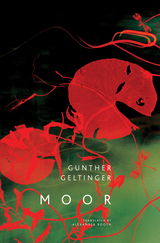
Moor
Gunther Geltinger
Seagull Books, 2017
It’s the early 1970s and Dion Katthusen, thirteen, is growing up fatherless in a small village in northern Germany. An only child plagued with a devastating stutter, Dion is ostracized by his peers and finds solace in the company of nature, collecting dragonflies in a moor filled with myths and legends. On the precipice of adulthood, Dion begins to spill the secrets of his heart—his burning desire for faultless speech and his abiding relationship with his mother, a failed painter with secrets of her own. Even as Dion spins his story, his speech is filled with fissures and holes—much like the swampy earth that surrounds him. Nature, though so often sublime, can also be terribly cruel.
Moor is Dion’s story—a story of escaping the quicksand of loneliness and of the demands we make on love, even as those surrounding us are hurt in their misguided attempts to bear our suffering. Powerfully tuned to the relationship between human and nature, mother and son, Moor is a mysterious and experimental portrait of childhood. Written by up-and-coming German novelist Gunther Geltinger, the novel received critical acclaim in Germany and is now presented in English for the first time by translator Alexander Booth. Evocative and bold, Dion’s story emerges from the forces of nature, his voice rising from the ground beneath the reader’s feet, not soon to be forgotten.
Moor is Dion’s story—a story of escaping the quicksand of loneliness and of the demands we make on love, even as those surrounding us are hurt in their misguided attempts to bear our suffering. Powerfully tuned to the relationship between human and nature, mother and son, Moor is a mysterious and experimental portrait of childhood. Written by up-and-coming German novelist Gunther Geltinger, the novel received critical acclaim in Germany and is now presented in English for the first time by translator Alexander Booth. Evocative and bold, Dion’s story emerges from the forces of nature, his voice rising from the ground beneath the reader’s feet, not soon to be forgotten.
[more]

André Gorz
A Life
Willy Gianinazzi
Seagull Books, 2022
The first and exhaustive biography of twentieth-century leftist philosopher André Gorz.
Recognized as one of the most lucid and innovative critics of contemporary capitalism, André Gorz (1923–2007) was known for asking fundamental questions regarding the meaning of life and work. This first biography of a unique figure operating at the confluence of literature, philosophy, and journalism revisits half a century of intellectual and political life.
Born Gerhart Hirsch in Vienna, he studied in Switzerland before opting to live and work in France. A self-taught existentialist thinker, he was constantly revising his view of the world, unafraid to break new theoretical ground in doing so. Influenced by Marx, Husserl, Sartre, and Illich, he had very close affinities with the new thinking on the Left that was coming out of Italy in the 1960s and 70s. He was also one of the first thinkers to shape political ecology and to advocate de-growth. The intellectual on the editorial board of Sartre’s journal Les Temps Modernes, Gorz was also a mainstream journalist. He wrote in L’Express under the sobriquet Michel Bosquet before joining others in the creation of Le Nouvel Observateur.
Through Gorz’s life journey, we meet not only Sartre and de Beauvoir, but also Herbert Marcuse, Fidel Castro, Daniel Cohn-Bendit, Ivan Illich, Félix Guattari, Antonio Negri, and many others. Beyond his poignant autobiographical narratives, The Traitor and Letter to D, which attest to his deep humanity, Gorz remains a precious guide for all who believe that another world is still possible.
Recognized as one of the most lucid and innovative critics of contemporary capitalism, André Gorz (1923–2007) was known for asking fundamental questions regarding the meaning of life and work. This first biography of a unique figure operating at the confluence of literature, philosophy, and journalism revisits half a century of intellectual and political life.
Born Gerhart Hirsch in Vienna, he studied in Switzerland before opting to live and work in France. A self-taught existentialist thinker, he was constantly revising his view of the world, unafraid to break new theoretical ground in doing so. Influenced by Marx, Husserl, Sartre, and Illich, he had very close affinities with the new thinking on the Left that was coming out of Italy in the 1960s and 70s. He was also one of the first thinkers to shape political ecology and to advocate de-growth. The intellectual on the editorial board of Sartre’s journal Les Temps Modernes, Gorz was also a mainstream journalist. He wrote in L’Express under the sobriquet Michel Bosquet before joining others in the creation of Le Nouvel Observateur.
Through Gorz’s life journey, we meet not only Sartre and de Beauvoir, but also Herbert Marcuse, Fidel Castro, Daniel Cohn-Bendit, Ivan Illich, Félix Guattari, Antonio Negri, and many others. Beyond his poignant autobiographical narratives, The Traitor and Letter to D, which attest to his deep humanity, Gorz remains a precious guide for all who believe that another world is still possible.
[more]

Dreaming a Paradise
Migrations and the Story of Buland Masjid
Chitvan Gill
Seagull Books, 2023
The story of the people of Buland Masjid, a community of migrants in Delhi.
In Dreaming a Paradise, Chitvan Gill draws on years of research and photographic reportage to unveil the tales of individuals driven to escape poverty, violence, and despair in search of happiness and a place to call home. At the heart of this book lies Buland Masjid, an unauthorized colony on the Yamuna riverbank in Delhi, India, which thrives with restless industry even under the unyielding grip of poverty. The women and men of this colony recycle scrap, repair machines, manufacture clothes, run schools, and sell delicious food, breathing new energy into a once-desolate economy. However, beneath the surface lies a tale of urban planning gone awry, reflecting the comprehensive failure of those in power. Delving into the lives of those cast aside and walled off from India’s vast wealth, this book highlights the huge divide between modern India’s haves and have-nots, and the inherent contradictions in a nation grappling with its identity.
In a compelling exploration of humanity’s journey, Dreaming a Paradise reveals the triumphs, tragedies, hopes, and hardships of resilient souls seeking their own patch of heaven amidst chaos. From the eternal cycles of loss and discovery, we witness the formation of civilizations and the timeless yearning that defines the human condition.
In Dreaming a Paradise, Chitvan Gill draws on years of research and photographic reportage to unveil the tales of individuals driven to escape poverty, violence, and despair in search of happiness and a place to call home. At the heart of this book lies Buland Masjid, an unauthorized colony on the Yamuna riverbank in Delhi, India, which thrives with restless industry even under the unyielding grip of poverty. The women and men of this colony recycle scrap, repair machines, manufacture clothes, run schools, and sell delicious food, breathing new energy into a once-desolate economy. However, beneath the surface lies a tale of urban planning gone awry, reflecting the comprehensive failure of those in power. Delving into the lives of those cast aside and walled off from India’s vast wealth, this book highlights the huge divide between modern India’s haves and have-nots, and the inherent contradictions in a nation grappling with its identity.
In a compelling exploration of humanity’s journey, Dreaming a Paradise reveals the triumphs, tragedies, hopes, and hardships of resilient souls seeking their own patch of heaven amidst chaos. From the eternal cycles of loss and discovery, we witness the formation of civilizations and the timeless yearning that defines the human condition.
[more]
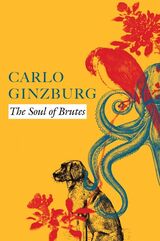
The Soul of Brutes
Carlo Ginzburg
Seagull Books, 2022
A collection of diverse yet interconnected essays from one of the world’s most respected historians.
Carlo Ginzburg has been at the forefront of the discipline of microhistory ever since his earliest works were published to great acclaim in the 1970s. The Soul of Brutes brings together four of Ginzburg’s recent scintillating essays and lectures that testify to the diversity of his thoughts on history and philosophy.
“Civilization and Barbarism” resurrects a sixteenth-century debate between two thinkers in Spain about the humanness, or lack thereof, of Native Americans, and highlights the influence of classical thinkers, from Herodotus to Aristotle, and the iterations and interpretations through which their writings have traversed down to the Cinquecento. In “The Soul of Brutes” Ginzburg traces the genealogy of the debate on the rationality of animals and the limits of their imagination, from Plutarch and Aristotle to sixteenth-century thinkers like Pietro Pomponazzi and Girolamo Rorario. Following Montaigne, he provokes, are we to beasts as they seem to us? In “Calvino, Manzoni and the Grey Zone,” Carlo Ginzburg pithily writes about the mental dialogue between Holocaust survivor Primo Levi and two Italians who profoundly influenced Levi’s search for these “unexplored pockets of exception”—his contemporary Italo Calvino and the nineteenth-century novelist and philosopher Alessandro Manzoni. And finally, in “Schema and Bias”, he probes whether the historian can clearly see into the past, peering through the layers of bias, which include their own prejudices, or if relativism is the only path.
With several beautifully reproduced color illustrations, The Soul of Brutes will interest not only scholars of history, philosophy, and art, but also general intellectual readers.
Carlo Ginzburg has been at the forefront of the discipline of microhistory ever since his earliest works were published to great acclaim in the 1970s. The Soul of Brutes brings together four of Ginzburg’s recent scintillating essays and lectures that testify to the diversity of his thoughts on history and philosophy.
“Civilization and Barbarism” resurrects a sixteenth-century debate between two thinkers in Spain about the humanness, or lack thereof, of Native Americans, and highlights the influence of classical thinkers, from Herodotus to Aristotle, and the iterations and interpretations through which their writings have traversed down to the Cinquecento. In “The Soul of Brutes” Ginzburg traces the genealogy of the debate on the rationality of animals and the limits of their imagination, from Plutarch and Aristotle to sixteenth-century thinkers like Pietro Pomponazzi and Girolamo Rorario. Following Montaigne, he provokes, are we to beasts as they seem to us? In “Calvino, Manzoni and the Grey Zone,” Carlo Ginzburg pithily writes about the mental dialogue between Holocaust survivor Primo Levi and two Italians who profoundly influenced Levi’s search for these “unexplored pockets of exception”—his contemporary Italo Calvino and the nineteenth-century novelist and philosopher Alessandro Manzoni. And finally, in “Schema and Bias”, he probes whether the historian can clearly see into the past, peering through the layers of bias, which include their own prejudices, or if relativism is the only path.
With several beautifully reproduced color illustrations, The Soul of Brutes will interest not only scholars of history, philosophy, and art, but also general intellectual readers.
[more]
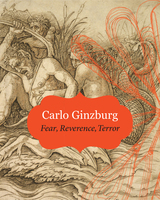
Fear Reverence Terror
Carlo Ginzburg
Seagull Books, 2017
We are surrounded by images, fairly drowning in them. From our cell phones to our computers, from our televisions at home to the screens that light up while we wait in the grocery store checkout line, images of all kinds are seducing us, commanding us to buy!, scaring us, dazzling us.
Fear, Reverence, Terror invites us to look at images slowly, with the help of a few examples: Picasso’s Guernica, the “Lord Kitchener Wants You” World War I recruitment poster, Jacques-Louis David’s Marat, the frontispiece of Thomas Hobbes’s Leviathan, a cup of gilded silver with scenes from the conquest of the New World. Are these political images, Carlo Ginzburg asks? Yes, because every image is, in a sense, political—an instrument of power. Tacitus once wrote, unforgettably, that we are enslaved by lies of which we ourselves are the authors. Is it possible to break this bond? Fear, Reverence, Terror will answer this question.
Praise for Ginzburg
“Ginzburg has many claims to be considered the outstanding European historian of the generation which came of age in the late Sixties. Certainly few have equalled him in originality, variety, and audacity.”—London Review of Books
“Ginzburg’s scholarship is dazzling and profound.”—Publisher’s Weekly
Fear, Reverence, Terror invites us to look at images slowly, with the help of a few examples: Picasso’s Guernica, the “Lord Kitchener Wants You” World War I recruitment poster, Jacques-Louis David’s Marat, the frontispiece of Thomas Hobbes’s Leviathan, a cup of gilded silver with scenes from the conquest of the New World. Are these political images, Carlo Ginzburg asks? Yes, because every image is, in a sense, political—an instrument of power. Tacitus once wrote, unforgettably, that we are enslaved by lies of which we ourselves are the authors. Is it possible to break this bond? Fear, Reverence, Terror will answer this question.
Praise for Ginzburg
“Ginzburg has many claims to be considered the outstanding European historian of the generation which came of age in the late Sixties. Certainly few have equalled him in originality, variety, and audacity.”—London Review of Books
“Ginzburg’s scholarship is dazzling and profound.”—Publisher’s Weekly
[more]
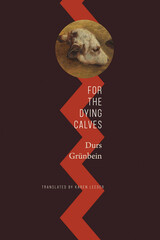
For the Dying Calves
Beyond Literature: Oxford Lectures
Durs Grünbein
Seagull Books, 2021
Poetically written and originally given as lectures, this is a moving essay collection from Durs Grünbein.
In his four Lord Weidenfeld Lectures held in Oxford in 2019, German poet Durs Grünbein dealt with a topic that has occupied his mind ever since he began to perceive his own position within the past of his nation, his linguistic community, and his family: How is it possible that history can determine the individual poetic imagination and segregate it into private niches? Shouldn’t poetry look at the world with its own sovereign eyes instead?
In the form of a collage or “photosynthesis,” in image and text, Grünbein lets the fundamental opposition between poetic license and almost overwhelming bondage to history appear in an exemplary way. From the seeming trifle of a stamp with the portrait of Adolf Hitler, he moves through the phenomenon of the “Führer’s streets” and into the inferno of aerial warfare. In the end, Grünbein argues that we are faced with the powerlessness of writing and the realization, valid to this day, that comes from confronting history. As he muses, “There is something beyond literature that questions all writing.”
In his four Lord Weidenfeld Lectures held in Oxford in 2019, German poet Durs Grünbein dealt with a topic that has occupied his mind ever since he began to perceive his own position within the past of his nation, his linguistic community, and his family: How is it possible that history can determine the individual poetic imagination and segregate it into private niches? Shouldn’t poetry look at the world with its own sovereign eyes instead?
In the form of a collage or “photosynthesis,” in image and text, Grünbein lets the fundamental opposition between poetic license and almost overwhelming bondage to history appear in an exemplary way. From the seeming trifle of a stamp with the portrait of Adolf Hitler, he moves through the phenomenon of the “Führer’s streets” and into the inferno of aerial warfare. In the end, Grünbein argues that we are faced with the powerlessness of writing and the realization, valid to this day, that comes from confronting history. As he muses, “There is something beyond literature that questions all writing.”
[more]
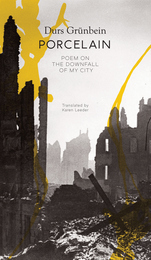
Porcelain
Poem on the Downfall of My City
Durs Grünbein
Seagull Books, 2020
A book-length cycle of forty-nine poems written over the course of more than a decade that together serve as a lament for Durs Grünbein’s hometown, Dresden, which was destroyed in the Allied firebombing of February 1945.
Porcelain is a book-length cycle of forty-nine poems written over the course of more than a decade that together serve as a lament for Durs Grünbein’s hometown, Dresden, which was destroyed in the Allied firebombing of February 1945. The book is at once a history and “declaration of love” to the famed “Venice on the Elbe,” so catastrophically razed by British bombs; a musical fusion of eyewitness accounts, family memories, and stories, of monuments and relics; the story of the city’s destiny as seen through a prism of biographical enigmas, its intimate relation to the “white gold” porcelain that made its fortune and reflections on the power and limits of poetry. Musical, fractured, ironic, and elegiac, Porcelain is controversial, too, in setting itself against what Grünbein calls the “myth” of the Germans as innocent victims of a war crime. At the same time, it never loses sight of the horror deliberately visited on an unwitting civilian population, nor the devastation that looms so large in the German memory. Published for the first time in English, on the seventy-fifth year anniversary of the firebombing, this edition contains new images, notes, Grünbein’s own reflections, and an additional canto—an extraordinary act of poetic kintsugi for the fractured remains of Dresden’s memory.
Porcelain is a book-length cycle of forty-nine poems written over the course of more than a decade that together serve as a lament for Durs Grünbein’s hometown, Dresden, which was destroyed in the Allied firebombing of February 1945. The book is at once a history and “declaration of love” to the famed “Venice on the Elbe,” so catastrophically razed by British bombs; a musical fusion of eyewitness accounts, family memories, and stories, of monuments and relics; the story of the city’s destiny as seen through a prism of biographical enigmas, its intimate relation to the “white gold” porcelain that made its fortune and reflections on the power and limits of poetry. Musical, fractured, ironic, and elegiac, Porcelain is controversial, too, in setting itself against what Grünbein calls the “myth” of the Germans as innocent victims of a war crime. At the same time, it never loses sight of the horror deliberately visited on an unwitting civilian population, nor the devastation that looms so large in the German memory. Published for the first time in English, on the seventy-fifth year anniversary of the firebombing, this edition contains new images, notes, Grünbein’s own reflections, and an additional canto—an extraordinary act of poetic kintsugi for the fractured remains of Dresden’s memory.
[more]

Psyche Running
Selected Poems, 2005–2022
Durs Grünbein
Seagull Books, 2023
A dazzling selection of more than one hundred poems that trace the development of Durs Grünbein’s work over the past two decades.
Born in Dresden in 1962, Durs Grünbein is the most significant and successful poet of his generation in Germany. Since 1988, when the then-twenty-five-year-old burst onto the scene with his poetry collection Grauzone morgens—a mordant reckoning with the East Germany he grew up in—Grünbein has published more than thirty books of poetry and prose, which have been translated into dozens of languages.
In 2005 the volume Ashes for Breakfast introduced Grünbein to English-language readers for the first time by sampling poetry from his first four collections. Psyche Running picks up where that volume left off and offers a selection of poems from his nine subsequent collections, which shows how Grünbein has developed from his ironic take on the classical into an elegiac exploration of history through dream fragments and poems with a haunting existential unease.
Born in Dresden in 1962, Durs Grünbein is the most significant and successful poet of his generation in Germany. Since 1988, when the then-twenty-five-year-old burst onto the scene with his poetry collection Grauzone morgens—a mordant reckoning with the East Germany he grew up in—Grünbein has published more than thirty books of poetry and prose, which have been translated into dozens of languages.
In 2005 the volume Ashes for Breakfast introduced Grünbein to English-language readers for the first time by sampling poetry from his first four collections. Psyche Running picks up where that volume left off and offers a selection of poems from his nine subsequent collections, which shows how Grünbein has developed from his ironic take on the classical into an elegiac exploration of history through dream fragments and poems with a haunting existential unease.
[more]

Delicates
Wendy Guerra
Seagull Books, 2023
Poems from a critically acclaimed Cuban writer available in English for the first time.
Imbued with a sensuality reminiscent of the work of Anaïs Nin, Wendy Guerra’s Delicates takes readers on an exhilarating journey through the cities of love, where women leave their bodies “in the showers of men,” marking their territory “like animals in heat,” their panties “saturated with sand and a sidereal isolating odor.” Guerra’s shocking metaphors and images invite us to enter her gallery of striking and provoking poems where we witness a flight through the air from a thirty-fourth-story window and a woman’s pilgrimage to the salt flats “to taste the pink in stones” on her lover’s behalf. Guerra’s relationship with her native Cuba—much like her relationships with men—is complex and multilayered. Her work confronts the realities of a political system that doesn’t celebrate artistic freedom. Here we have a new way of looking at a woman, an artist, a country, and the colonizers of that country. In these music-infused poems, Guerra shares with us her hard-won truths.
Imbued with a sensuality reminiscent of the work of Anaïs Nin, Wendy Guerra’s Delicates takes readers on an exhilarating journey through the cities of love, where women leave their bodies “in the showers of men,” marking their territory “like animals in heat,” their panties “saturated with sand and a sidereal isolating odor.” Guerra’s shocking metaphors and images invite us to enter her gallery of striking and provoking poems where we witness a flight through the air from a thirty-fourth-story window and a woman’s pilgrimage to the salt flats “to taste the pink in stones” on her lover’s behalf. Guerra’s relationship with her native Cuba—much like her relationships with men—is complex and multilayered. Her work confronts the realities of a political system that doesn’t celebrate artistic freedom. Here we have a new way of looking at a woman, an artist, a country, and the colonizers of that country. In these music-infused poems, Guerra shares with us her hard-won truths.
[more]
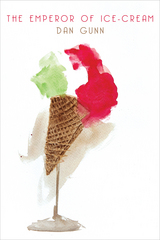
The Emperor of Ice-Cream
Dan Gunn
Seagull Books, 2014
In The Emperor of Ice-Cream, we are introduced to Lucia. Now in her eighties, this daughter of Italian immigrants looks back on her youth spent in Scotland during the 1920s and 30s. She remembers her three brothers, Dario, Giulio and Emilio, and the very different ways they lived through these decades: the eldest establishes the Edinburgh Fascist club, the second sets up a luxurious ice-cream parlor, the youngest hones his verbal skills for a future as a poet. Lucia learns what it is to be an immigrant and to wonder where ‘home’ is; she encounters religious sectarianism, idealism, and disillusionment. She experiences passion, hope, and disappointment.
When she falls in love in Rome, it appears that happiness is Lucia’s for the asking, until unstoppable forces intervene—in both of her countries. With mounting tension, her tale leads through the rise of Fascism to the terrible moment in June 1940 when Mussolini declares war, and British Italians are interned. When hundreds are herded as ‘enemy aliens’ onto a ship bound for exile, among their number are two of her brothers. Determined to tell their story before it is too late, Lucia gives an account of one of the most shameful episodes in Britain’s Second World War.
Through his portrayal of Lucia’s singular vision and voice, Dan Gunn has created an unforgettable character who, while registering the buffets of history, is—just possibly—writing herself toward some overdue inner peace.
When she falls in love in Rome, it appears that happiness is Lucia’s for the asking, until unstoppable forces intervene—in both of her countries. With mounting tension, her tale leads through the rise of Fascism to the terrible moment in June 1940 when Mussolini declares war, and British Italians are interned. When hundreds are herded as ‘enemy aliens’ onto a ship bound for exile, among their number are two of her brothers. Determined to tell their story before it is too late, Lucia gives an account of one of the most shameful episodes in Britain’s Second World War.
Through his portrayal of Lucia’s singular vision and voice, Dan Gunn has created an unforgettable character who, while registering the buffets of history, is—just possibly—writing herself toward some overdue inner peace.
[more]
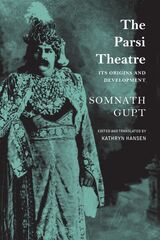
The Parsi Theatre
Its Origins and Development
Somnath Gupt
Seagull Books, 2005
A seminal study of a historically significant theater style.
Unrivaled in its long-term impact, Parsi theater remains a crucial component of South Asia’s cultural heritage. Like vaudeville in America, Parsi theater dominated mass entertainment in colonial India in the era before cinema. Drawn by the magic of sight and sound, crowds filled the country’s urban playhouses each night. Marked by extravagant acting, operatic singing, and melodramatic stage effects, this cosmopolitan theater brought an unprecedented level of sophistication to the South Asian stage and transformed commercial drama into a modern industry, paving the way for Indian cinema. This volume presents Somnath Gupt’s classic history of Parsi theater in an English translation enhanced by illustrations, annotations, and appendices, which make it a more comprehensive and accurate reference work.
Unrivaled in its long-term impact, Parsi theater remains a crucial component of South Asia’s cultural heritage. Like vaudeville in America, Parsi theater dominated mass entertainment in colonial India in the era before cinema. Drawn by the magic of sight and sound, crowds filled the country’s urban playhouses each night. Marked by extravagant acting, operatic singing, and melodramatic stage effects, this cosmopolitan theater brought an unprecedented level of sophistication to the South Asian stage and transformed commercial drama into a modern industry, paving the way for Indian cinema. This volume presents Somnath Gupt’s classic history of Parsi theater in an English translation enhanced by illustrations, annotations, and appendices, which make it a more comprehensive and accurate reference work.
[more]
READERS
Browse our collection.
PUBLISHERS
See BiblioVault's publisher services.
STUDENT SERVICES
Files for college accessibility offices.
UChicago Accessibility Resources
home | accessibility | search | about | contact us
BiblioVault ® 2001 - 2024
The University of Chicago Press









